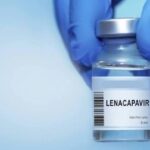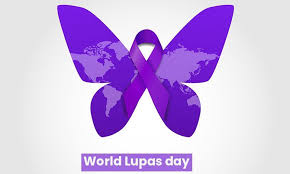By Oluwaseyi Oduneye-Ogunwomoju
Lupus Warriors NG has organised a sensitisation walk and free screening sessions to celebrate 2025 World Lupus Day in Ibadan.
The group’s founder, Miss Olatomiwa Ogunwomoju, said the walk was to create awareness about the disease and spread all necessary information about it.
According to her, lupus is an autoimmune disease where the immune system attacks the body and its healthy tissues, affecting any part of the body.
“We are celebrating every Lupus warrior – those living with it and creating awareness so that people can know more about the disease, and also help to spread the word.
“It is a disease that I’ve been living with for the last seven years; it will be eight years by December.
“When I got diagnosed with lupus, it affected my sight as I was blind for over a year, and I’m still partially sighted.
“I still can’t see very well; it is very challenging living with an awful condition, and even with medication and hospital visits, it can be a lot with lupus.
“You have very high and low days, but the most important thing is that I try to take my medication and stay positive,” she said.
Ogunwomoju identified the high cost of medications as a major challenge warriors face.
“That was the reason I gave out free medication because the medication is not cheap, and how have I been able to manage? It has been God.
“I know there are a lot of lupus patients out there who are finding it difficult to get their medications and be able to look after themselves properly.
“This is why we are trying to create this awareness so that people can support lupus patients to live meaningful lives,” she said.
She appealed to the government at all levels to create more awareness and work with rheumatologists across hospitals to make medications free.
“Most patients already have a disability because they have lupus.
“It would have affected their eyes, legs, or hands, and it’s difficult to earn money as I can no longer do a 9-5 job because of my eyesight,” she said.
Meanwhile, Dr Ibukunoluwa Dedeke, a consultant rheumatologist at the University College Hospital (UCH), Ibadan, said lupus is the shortened form of Systemic Lupus Erythematosus (SLE).
“It’s an autoimmune disease in which the immune system of a particular individual, rather than just protecting them from infection, starts attacking the cells of the body.
“The prevalence of lupus in Oyo State is around 0.5 per cent, and it’s common in females far more than in males.
“The symptoms of Lupus at the early stage are easily mistaken for another disease, and the common diseases that people think they have are malaria and thyroid.
“The pattern is that they notice this week, they treat malaria, and two weeks after, they treat thyroid, and they are treating malaria that isn’t going, and that should cause a red flag.
“That you’re treating something and the drug you’re using is not working, that means you’re not treating what you think you’re treating.
“People make the error that it’s resistant malaria, and that’s why we always advise that the commonest signs of Lupus are fatigue, joint pain, low-grade fever; some will have rashes.
“The people with rashes are a bit fortunate because they notice that this is not just malaria, and they come on time.
“Lupus can simmer for months or even years before they are diagnosed,” he said.
According to Dedeke, the best way to control lupus is early diagnosis because if its activities in the body continue, it can lead to irreversible organ damage, especially the kidneys.
“This is why when lupus patients come late with irreversible changes, they would need a renal transplant.
“Lupus is, however, not a death sentence.
“One of the challenges of treating lupus is the side effects of some of the drugs; the rheumatologist is trained to monitor this and prevent it as they treat.
“When you’re not treated by a specialist, the adverse effects are higher because there are standards that we use to monitor the care of our patients to reduce those adverse effects.
“On average, lupus patients need close to N100,000 monthly for medication, and that’s because of the fall in the dollar to naira.
“We also have the challenge of availability of these medications, but with further spread of awareness, we hope that pharmaceutical companies too will begin to bring them in because a lot of people don’t know about the drugs.
“When they see them, they say they’re cancer drugs that we don’t need. No, we use them for lupus at a lower and safer dose to control patients with autoimmune diseases,” he said.
The consultant said that the Nigerian Society of Rheumatologists has, however, implemented moves to include autoimmune medications in the essential drug list.
He said he hoped that the awareness would make the government aware of its citizens having lupus and expedite the inclusion of its treatment in the essential drug list.
A lupus patient and beneficiary, 16-year-old Titilayo Adigun, said it had been difficult for her since she was diagnosed with the disease.
“I was in JSS 3 when I was diagnosed with lupus disease.
“I can recall that after our examination, I was having a sharp pain, and I started bleeding; I thought it was stress, but after a series of tests, I was diagnosed with lupus.
“Being a lupus patient, life has been stressful, but after some time, it has become more normal, and the drugs have become normal.” (NAN)(www.nannews.ng)
Edited by Moses Solanke












